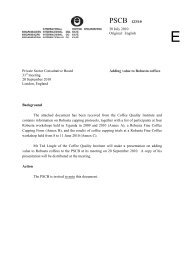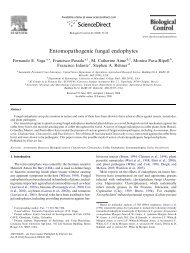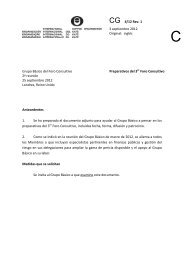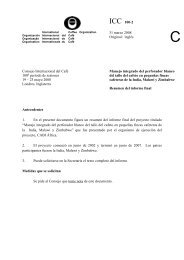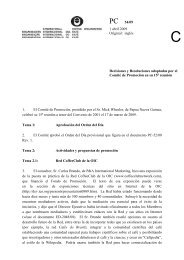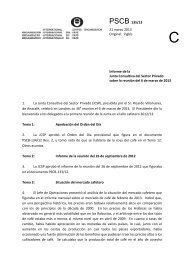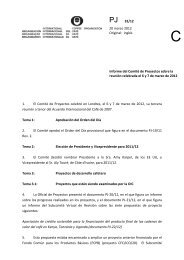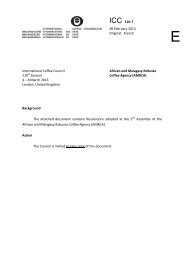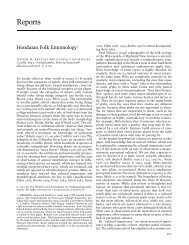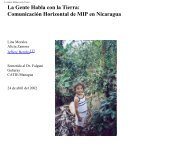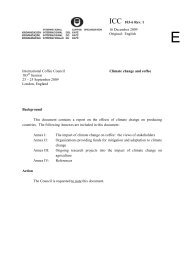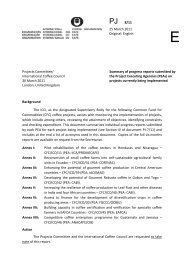Devouring profit - International Coffee Organization
Devouring profit - International Coffee Organization
Devouring profit - International Coffee Organization
Create successful ePaper yourself
Turn your PDF publications into a flip-book with our unique Google optimized e-Paper software.
92<br />
As can be observed, 60% of farmers are over 49 years old. This average age could be<br />
a barrier to IPM adoption as found by Duque et al. (2000), for coffee farmers in<br />
Colombia. On the other hand, in an appraisal of the national coffee programme carried<br />
out by the Mexican <strong>Coffee</strong> Council (2000) it was reported that the average family<br />
composition was about 10 members distributed among children, young people, adults<br />
and elderly people. Additionally, Jimenez (1999) found that the level of formal education<br />
was very low, 75.3% of the coffee farmers either had no education or had not<br />
finished primary school. Again, for high adoption of IPM, a good level of education is<br />
desirable because included in the strategy are concepts such as sampling, mathematical<br />
calculations etc.<br />
Land tenure: the salient factor in the Mexican case is that 95% of farmers own their<br />
farms and 61.5% have been farming them for more than 10 years. Land reforms in<br />
Mexico have guaranteed that most of the farmers have clear property rights on land<br />
they cultivate, though using this as loan collateral is often not easy because of strict<br />
laws about disposing of this land.<br />
Labour needs & rural wages: agriculture and related sectors (forestry, fishing, etc.)<br />
currently employs about 22% of the national labour. Related to wages, it was possible<br />
to observe at least two basic kind of payments: for Ejidos 26 coffee farmers were paying<br />
$20 Mexican pesos 27 per day’s labour (US$2.08/day), plus two meals. On larger farms<br />
the salary was about $30 per day (US$3.12).<br />
According to the Mexican <strong>Coffee</strong> Council (2000), family members carry out coffee<br />
activities, covering approximately 90% of the annual farm needs. Figure 19 shows the<br />
Figure 19. Family contribution to labour needs for Mexican coffee.<br />
26 Ejido is a type of land tenure that appeared after land reform programmes were implemented.<br />
A large farm was divided into small plots that were allocated among small coffee<br />
farmers; they own their lands according to Government laws.<br />
27 Exchange rate: US$1 = $9.6 Mexican pesos (2000)



